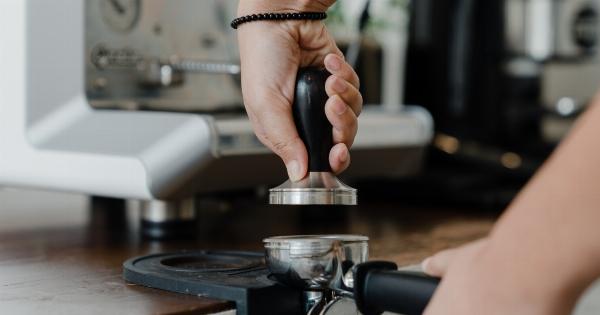Sleep is crucial for overall health and well-being. It helps to rejuvenate and repair our bodies, improve cognitive function, and increase productivity.
However, many factors can disrupt our sleep, including stress, bedroom environment, and even the foods we consume.
While certain foods promote better sleep, others can sabotage it by interfering with our sleep patterns and causing discomfort. In this article, we will explore some common foods that may negatively impact your sleep quality.
1. Caffeine
Caffeine is a stimulant that provides a quick energy boost and keeps us alert. It is commonly found in coffee, tea, energy drinks, soda, and chocolate.
Consuming caffeine too close to bedtime can interfere with your ability to fall asleep and stay asleep.
To ensure a good night’s sleep, limit your caffeine intake and avoid consuming it at least six hours before bedtime.
2. Spicy Foods
Spicy foods may be delicious, but they can also cause heartburn and indigestion, especially when consumed close to bedtime. These gastrointestinal issues can disrupt your sleep and make it more difficult to get comfortable.
If you enjoy spicy foods, try to consume them earlier in the evening to allow enough time for digestion before bed.
3. Alcohol
Although alcohol can make you feel sleepy initially, it can actually disrupt the quality of your sleep. It reduces rapid eye movement (REM) sleep, which is important for memory consolidation and learning.
Additionally, alcohol can cause frequent awakenings throughout the night and leave you feeling restless the next morning.
It’s best to avoid alcohol before bed or limit your intake to moderate amounts earlier in the evening.
4. High-Fat Foods
Consuming high-fat foods, especially close to bedtime, can cause indigestion and discomfort, leading to disrupted sleep.
These foods require more time to be digested properly, and lying down too soon after eating them can result in acid reflux and heartburn.
Opt for lighter, easily digestible meals in the evening to promote better sleep.
5. Sugary Foods and Drinks
Sugary foods and drinks provide a quick energy boost, but they can cause blood sugar fluctuations and subsequent crashes. This rollercoaster effect can keep you tossing and turning throughout the night.
Additionally, sugary foods and drinks can lead to increased trips to the bathroom, further disrupting your sleep.
Avoid consuming sugary treats close to bedtime for a more restful night’s sleep.
6. Processed and Fast Foods
Processed foods and fast foods are generally high in unhealthy fats, salt, and sugar. These foods can disrupt your sleep due to their high calorie content and the potential discomfort caused by poor digestion.
Opt for whole, unprocessed foods whenever possible and limit your intake of fast food to promote better sleep.
7. Foods High in Tyramine
Tyramine is an amino acid that can cause alertness and even headaches in some people. Foods high in tyramine include aged cheeses, smoked meats, and certain fermented foods.
Consuming these foods close to bedtime can make it harder to fall asleep and stay asleep.
If you are sensitive to tyramine, try to avoid these foods in the evening to ensure a restful night’s sleep.
8. Heavy and Spicy Sauces
Heavy and spicy sauces, such as those found in certain pasta dishes or curries, can cause indigestion and discomfort. These symptoms can make it challenging to sleep comfortably and may lead to disruptive sleep throughout the night.
Consider opting for lighter sauce options if you are planning to have a late dinner.
9. Energy Drinks
Energy drinks are typically loaded with caffeine, sugar, and other stimulants. Consuming them too close to bedtime can significantly interfere with your sleep patterns and make it difficult to fall asleep when desired.
Avoid energy drinks altogether, especially later in the day, to optimize your sleep quality.
10. Acidic Foods
Acidic foods, such as citrus fruits and tomatoes, can cause acid reflux and heartburn, which may disrupt sleep. These foods can irritate the sensitive lining of the esophagus, leading to discomfort and difficulty falling asleep.
Consume acidic foods earlier in the evening and avoid lying down immediately after eating them to reduce the likelihood of acid reflux.
By being mindful of the foods you consume and their proximity to bedtime, you can improve your sleep quality and wake up feeling refreshed and energized.
Experiment with different dietary adjustments to find what works best for your body and sleep routine.




























